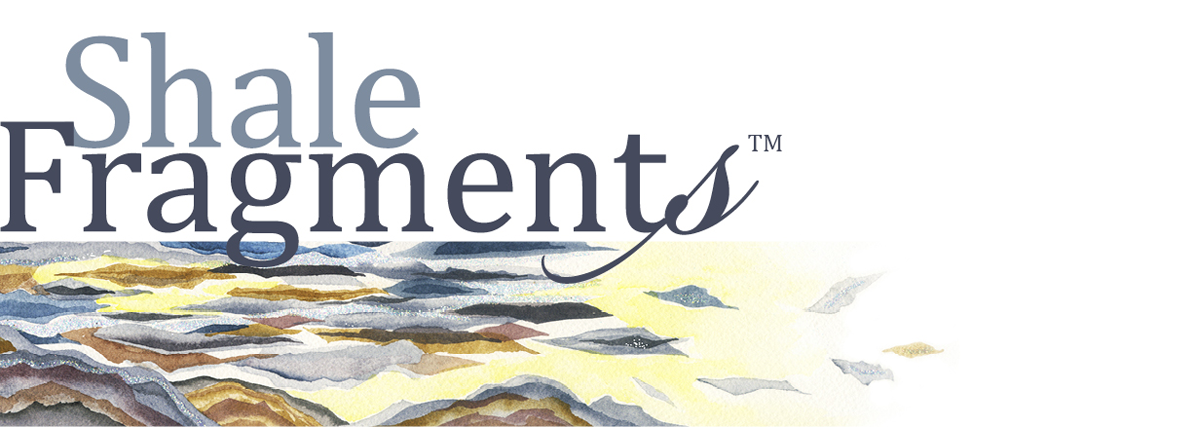Stress Relief
Stress Relief
Finding calm, clarity, and cleansing
Print the PDF
Dorcas came to my home a few weeks ago. Although I had never met her, I knew her like a sister. We had conversed many times, mostly through email. She is one of those called forth[1] gems in the body of Messiah. We had been praying for years to blanket certain communities in northeast Ohio with Flower Girl Greetings Art Cards. Finally, the day came. We filled her van and prayed for the ways the cards would be distributed and hearts would be softened and transformed by His Word of life.
We sat at my dining table and shared such richness in the Spirit. At one point, I said, “Dorcas, I have to pause for a minute to find a word to describe the fragrance you brought into this room.” Then, there were the words – “No striving.” The calm, clarifying, and cleansing affect of meeting Dorcas spurred thoughts in me about Psalm 46:10-11 – “Be still, and know that I am God; I will be exalted among the nations, I will be exalted in the earth. The Lord of Hosts is with us; The God of Jacob is our refuge.” Dorcas was at rest in the current of His purposes. There was no movement unless He led, and she actively watched for His lead.
So, how do we remain calm when unrest swirls in and around us in the form of bad news, grief, sickness, pain, fatigue, loneliness, offense, rejection, packed schedules, to-do lists, and other demands? How are we to be still and find the rest Yeshua promised us?[2]
Meditation
Many people endorse meditation to relieve stress. Usually, meditation is defined as a spot in time to come away to be renewed. It gives temporary relief by taking our minds away from our usual work and environment. Other forms of meditation are evil, directing us to unrest with a façade of rest. But the meditation described in Scripture results in perpetual renewal that keeps us calm and clear even amid stress.
The Bible contains many Hebrew words for meditation; four common words are – sîah, hāgâ, higgāyôn, and amar. They vary slightly in meaning, but their common thread of meaning is to repeat truth over and over until calm, clarity, and cleansing come. To see the nuances of their meanings, see Endnote 3.[3]
Be Still
The original Hebrew word for the phrase be still in Psalm 46:10 is rāpâ and means cease, let go, relax, let drop – actions that may result from meditation. We can let go by relying on the Holy Spirit to illuminate the truth of Scripture as we repeat in in our minds. The Psalmist relaxes and repeats the truth that the One True God WILL be exalted. It may not look like He reigns, but He does, and one day, everyone will know. He promises to be our refuge. He asks us to trust Him in every situation. The Psalms are a collection of songs that reflect the human heart wrestling with difficult life events in the presence of God who brings calm (comfort), clarity (understanding and truth), and cleansing (mind renewal and new direction).
Paul, an Example
As I continued to think about “finding calm,” my mind gravitated to the book of Philippians, a letter Paul wrote from a Roman prison to the followers of Yeshua in the city of Philippi. Paul had nurtured these new believers in their faith years before and sent this letter to them through the hands of Epaphroditus. Within Paul’s confined cell, his spirit soared with proclamations of the all-sufficiency of the Messiah in every circumstance, calling the Philippians to higher ground amid persecution and strife.
What characteristics marked Paul’s life from that prison? How did he remain calm and clear in a dank cell? Following are a few examples from the book of Philippians:
- Acceptance – Paul knew that whatever his circumstances, God would complete His work in him and in the Philippians. He knew the adversity would bring about good because he belonged to God (1:12).
- Fearlessness – In the face of opposition and death, Paul had no fear or anxiety about those who were working against him (1:15-18). He exhorted the believers not to be terrified by those who oppose them but to stand fast (1:28-30). Paul knew the worst that could happen to him would be death, but for him, that would be great (1:22-26)! His example was Yeshua who walked in the Father’s purpose without fearing death (2:5-11).
- Submission – Paul listened to God and let Him do the work. He yielded and let God create and lead the agenda (2:13). See also Romans 8:14.
- Letting go – Paul forgave, let go of the past, and focused on the future. Philippians 3:7-14 is one of the most powerful passages in Scripture. Paul wanted to lay hold of that for which God laid hold of him. Dear beloved of God, He has laid hold of you to lay hold of His purpose.
- Contentment – Paul said, “I have learned to be content in whatever circumstances I am.” (4:10-13)
- Joy and Gentleness – (4:4-5)
- Trust, prayer, and gratitude – (4:6-7)
- Mindfulness (4:8-9) – Paul intentionally kept his mind on things that renewed it – things true, honest, right, pure, lovely, good, and moral. (Also see Romans 12:2).
- Consumed by Christ – Last but most important, Paul was consumed by the cross of Christ. What do I mean by this? – The God of the universe’s plan was to love the world through Yeshua (Jesus) by placing our debt of waywardness, selfishness, and wrongdoing upon Him. God’s plan… to bring us into intimacy with Himself by paying for the gross weight of sin that was between Him and us… was a sacrifice we only had to receive. This news that Paul received on the road to Damascus was so amazing, so incredibly unbelievable, and yet so pure and true that everything dimmed in its wake. (1:21; 3:7-10, 20-21)
Father, bring calm, clarity, and cleansing to our minds by the Holy Spirit as we meditate upon, memorize, and speak Your truth!
[1] The word church in the Bible is the original Greek ekklēsia and means called-forth.
[2] Come to Me, all you laboring and burdened ones, and I will give you rest. Take up My yoke upon you and learn from Me, because I am humble and lowly of heart; and you will find rest to your souls, for my yoke is easy, and my load in light.” Matthew 11:28-30, MJLT (Messianic Jewish Literal Translation)
[3] Original Hebrew words for the word meditation in the Old Testament:
- Sîah – meditate, commune, speak, rehearse, go over a matter in your mind. It is found in Psalm 119 and refers to silent reflection on God’s work or a proclamation of that reflection. Speaking truth solidifies it in our spirits. Often, this reflection expresses itself in complaining until the Psalmist perceives the truth in God’s presence.
- Hāgâ – utter, mutter, moan, or meditate. Used in poetry, it is likened to a low sound like the moaning of a dove or the growling of a lion (Isaiah 31:4). It is used in Psalm 1:2; 63:6; and 77:12. The Psalmist meditates on God, His ways, and His words during troubling times as if clinging to truth in the storm.
- Higgāyôn – meditation, whispering, the melody of a harp or lyre. “Let the words of my mouth and the medita-tion of my heart be acceptable in Your sight, O Yahweh (YHWH), my rock and my Redeemer.” (Psalm 19:14)
- Āmar – commune, reflect, speak, converse, see, or make visible. In Psalm 4, David expresses his intense agitation of soul. He turns toward God pouring his heart out until he sees the situation from God’s perspective. He actively peers through his confusion and pain until His Creator brings calm and clarity to his heart and mind.
The Be Still Art Card is available in the Quietness Collection at Flower Girl Greetings.com.
Shale Fragments™ - devotionals by Beth Ann Phifer is a division of Flower Girl Greetings, LLC. ©2020, All Rights Reserved.
Blessings and love in Him,
Beth Ann
When you subscribe to the blog, we will send you an e-mail when there are new updates on the site so you wouldn't miss them.

Welcome to Shale Fragments, a collection of writings and art for individual and group use!
Teaching God’s truth and the beauty of His Word is my greatest delight! My art card company, Flower Girl Greetings, was launched in 2012 with this purpose. In April 2020, ShaleFragments.com became the gathering place for the writings.
As I have studied the rich meanings of the original Greek and Hebrew languages of the Bible, I continue to see beautiful progressions and connections that compel me to organize and convey their life-changing beauty!
Please click on each category to access a list of contents or scroll through the posts. To receive Shale Fragments updates, please subscribe here.


Comments